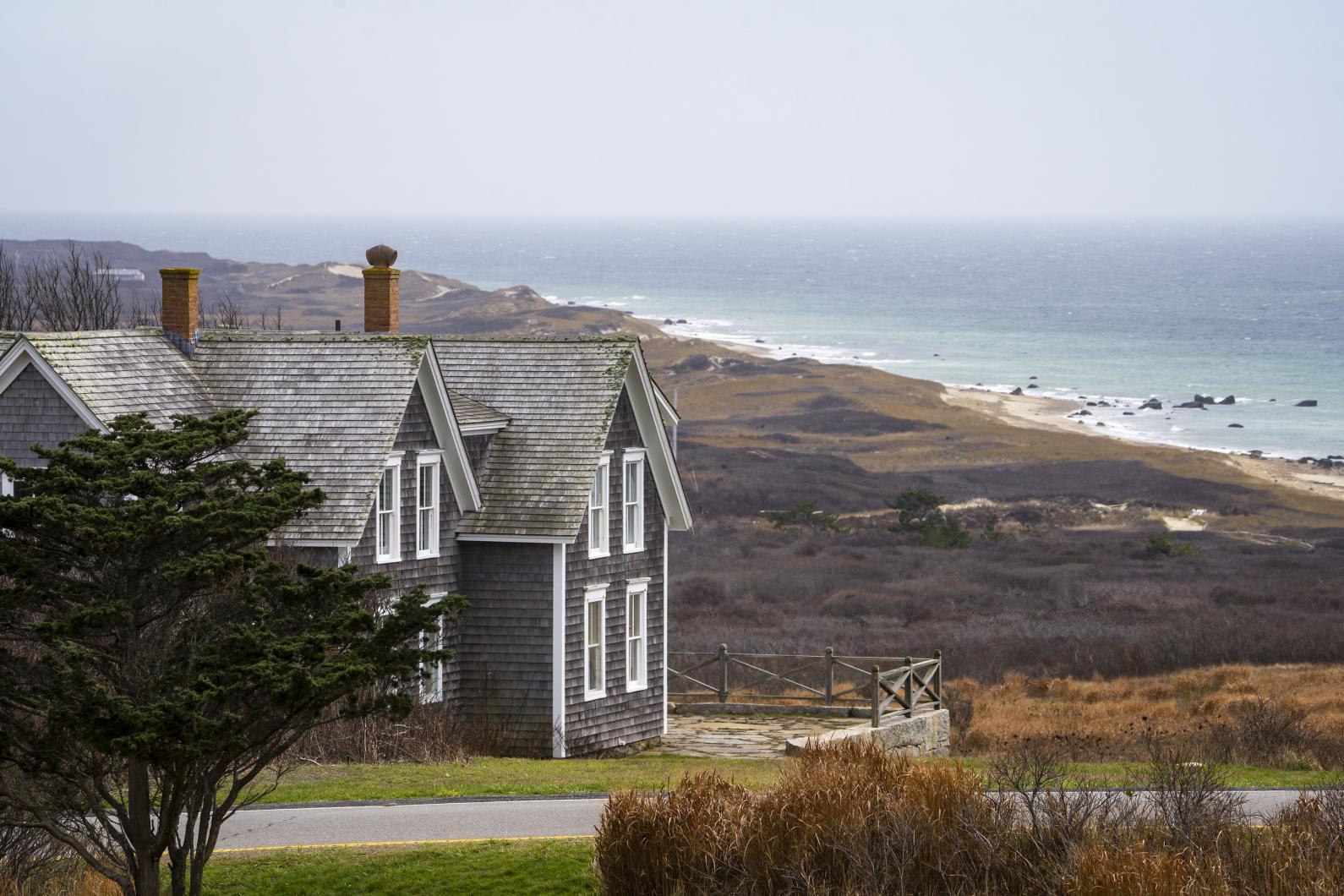The Martha’s Vineyard Commission’s climate action task force has sent a letter to the Vineyard’s congressional delegation requesting a meeting to discuss the Island’s inclusion in a future federal infrastructure bill.
The letter, addressed to Cong. Bill Keating and mentioning Sens. Elizabeth Warren and Ed Markey, was approved by a unanimous vote of the commission Thursday night. Both Vineyard state representatives, state Sen. Julian Cyr and Rep. Dylan Ferdandes, as well as John Kerry and Gov. Charlie Baker, are copied on the letter.
“We thought it was important to get engaged with our congressional representatives as quickly as we can, because one of the first things that is going to come out of the new congress is a large infrastructure package, and a significant part of that infrastructure package will be focused around green infrastructure, climate change,” commissioner Ben Robinson said at the meeting Thursday. “We’d been talking about this since we set up the task force — how we get the federal government involved. It seemed like it wasn’t worth it until there was a change at the administration level.”
The letter describes the history and background of the climate action task force, as well as some of its primary goals for federal infrastructure spending, including resiliency planning, aquaculture investments and housing. It also emphasizes the urgency of climate adaptation on the Island, describing the nuisance and storm flooding of the Five Corners intersection.
“As the work on Martha’s Vineyard to address climate change continues, we have been actively assembling the components of a successful climate change adaptation program,” the letter reads. “One key piece that is still missing is meaningful partnerships at the federal government level...Green infrastructure, energy transformation, and ecologically regenerative best practices must be deployed with urgency, and at the scale and speed required, with help from the federal government.”
Mr. Robinson said there had also been talk at the federal level about reintroducing earmarks. While he said there were pluses and minuses to the practice, they could benefit small communities like the Vineyard, offering opportunities for the funding of larger-scale projects, he said. One example provided in the letter is electrification of the Steamship Authority fleet.
Commissioners voted unanimously to send the letter, which requests a joint meeting between the offices of Cong. Keating, Sen. Warren and Sen. Markey in January.
“This is a way to get on their radar, and be a little bit of a squeaky wheel so Martha’s Vineyard doesn’t get left out when they start writing infrastructure bills,” Mr. Robinson said.
In other business Thursday, commissioners approved a loan rate modification with the Rockland Trust bank on two of their properties. According to commission treasurer Ernie Thomas, Rockland Trust agreed to lower the loan rate to 3.5 per cent on both the commission building and a house the commission purchased for executive director Adam Turner. The new loan rate has a 25-year amortization period.
The cost of lowering the rate was $2,500, but will save the commission $24,060 annually because of reduced loan payments.
The commission also granted a four-year extension on a family subdivision plan that has already been approved for Flat Point Farm in West Tisbury.
Mr. Turner and chairman Doug Sederholm began the meeting by heartily thanking outgoing commissioners Richard Toole and Robert Doyle for their service. Both representatives served on a variety of commission subcommittees, including the land use planning committee and the DRI checklist revision committee. Neither decided to run for re-election this year.
“Rob’s guidance and input has always been a unique perspective,” Mr. Turner said. “Richard is a person who’s everywhere . . . thank you so much.”
Mr. Doyle and Mr Toole also offered their thanks, and final words.
“I’m a big advocate for regionalization,” Mr. Toole said. “Without the MVC, or the land bank, Martha’s Vineyard wouldn’t be the place it is today.”







Comments (3)
Comments
Comment policy »